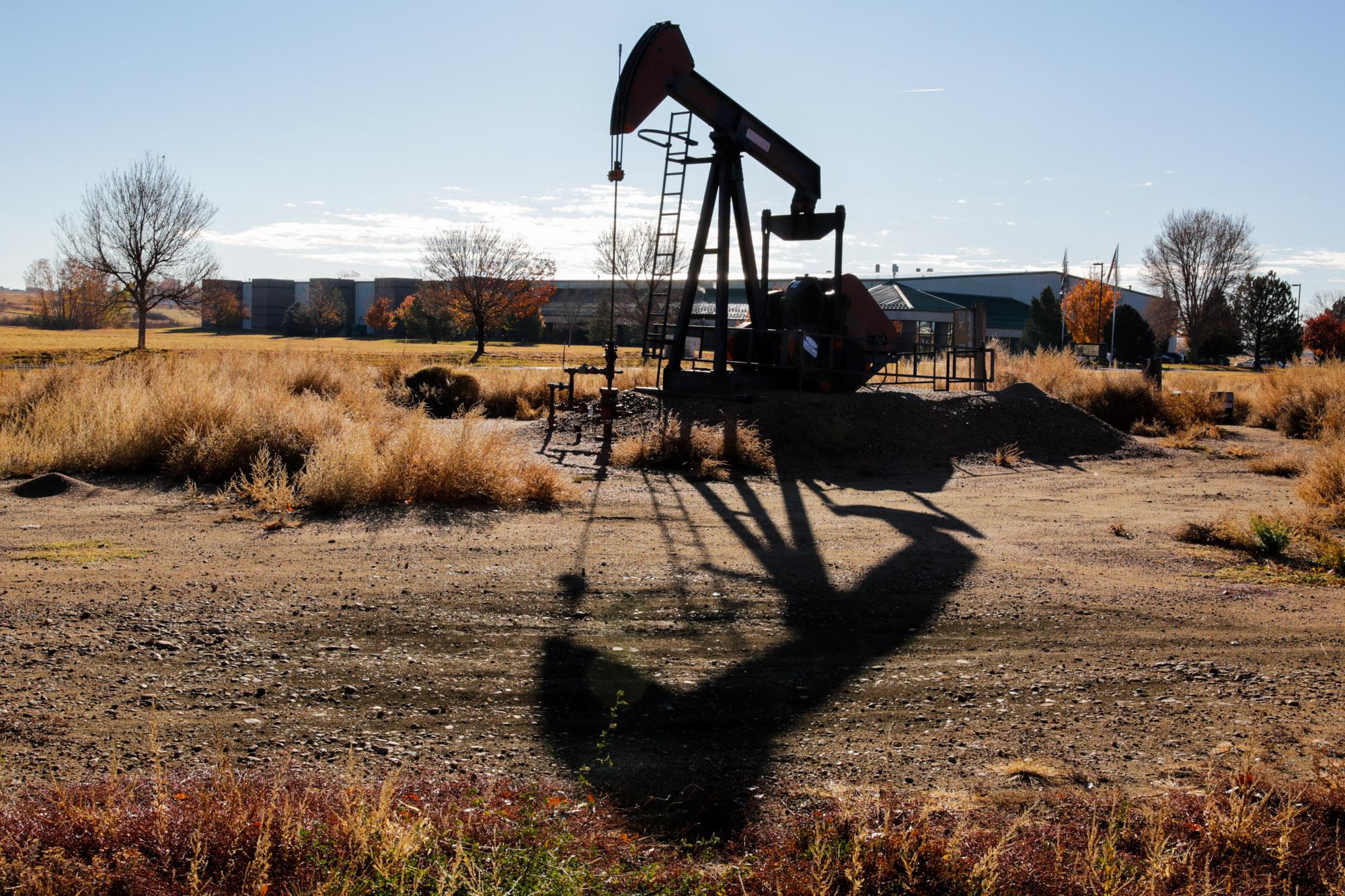
The future of Colorado's oil and gas industry could be headed back to the ballot in 2024.
Last week, Safe and Healthy Colorado — a coalition of dozens of climate and environmental groups — submitted a draft initiative to force state regulators to stop issuing new drilling permits after 2030.
Supporters of the plan say it's not only designed to rein in drilling and hydraulic fracturing across the state. It's also meant as a referendum on Gov. Jared Polis' approach to climate change, which has focused on regulating pollution from oil and gas operations instead of phasing them out over time.
"This will really be a litmus test," said Micah Parkin, the executive director of 350 Colorado and one of the advocates leading the ballot push. "If you're not gonna address the number one source of climate pollution and the number one source of ozone, it's a lot of talk."
Meanwhile, industry groups have already promised to fight the initiative, warning the plan would boost gas prices and home heating costs. Colorado was the fifth-largest oil-producing state and seventh-largest natural gas producer in 2021, according to federal data.
"This initiative would put people out of work and deprive our state of local reliable, affordable, and abundant energy,” said Dan Haley, the president and CEO of the Colorado Oil and Gas Association.
Kait Schwartz, the director of the American Petroleum Institute Colorado, said the consumers will continue to demand oil and natural gas for decades. Echoing a common industry talking point, she said Colorado's tough oil and gas regulations mean the state produces cleaner fuel than other places.
"This effort seeks to shut down production in Colorado while paying no mind to the state’s world-leading standards for public health, safety, welfare, and the environment," Schwartz said.
The oil and gas wars aren't over
The proposed initiative comes five years after another bitter fight over oil and gas development.
In 2018, the industry spent nearly $40 million to help defeat Proposition 112, which would have required any drilling outside federal land to be set back at least 2,500 feet from homes and waterways.
In the time since the defeat, Colorado Democrats passed a law to widen setbacks and give local governments more power over the industry. After signing the legislation, Polis marked the occasion by declaring the "oil and gas wars that have enveloped our state are over."
But industry opponents are frustrated his administration has continued to allow companies to develop new oil and gas projects across the state. Since Polis took office in 2018, state regulators have approved about 1,000 new drilling permits each year.
Parkin said the practice doesn't align with recommendations from international climate scientists or Colorado's own targets to reduce greenhouse gas emissions.
In addition, she pointed to recent estimates show the industry is now the largest local contributor to ground-level ozone pollution along the Front Range. After decades of failing to reduce concentrations of the dangerous lung irritant, the U.S. Environmental Protection Agency declared the region a "severe" violator of the U.S. Clean Air Act last year.
The proposal would require state regulators to first eliminate any permits for communities long affected by the impacts of climate change and pollution. Another provision calls for new programs to help oil and gas workers transition into other industries.
The plan isn't headed to the ballot just yet.
The coalition behind the bill submitted two versions of the initiative to the Colorado Legislative Council last week. One draft would place a full ban on all new permits starting in 2030. The other would continue to allow conventional drilling but ban new fracking permits after the same date.
Parkin said the coalition is still deciding between the two options.
She further acknowledges it won't be easy to collect the 124,238 valid signatures necessary to place an initiative on the 2024 ballot. Her coalition is guessing the task could cost at least $2 million.
"So far we've only raised maybe $50,000, so we're going to need a whole lot more," Parkin said.
Funding for public media is at stake. Stand up and support what you value today.







